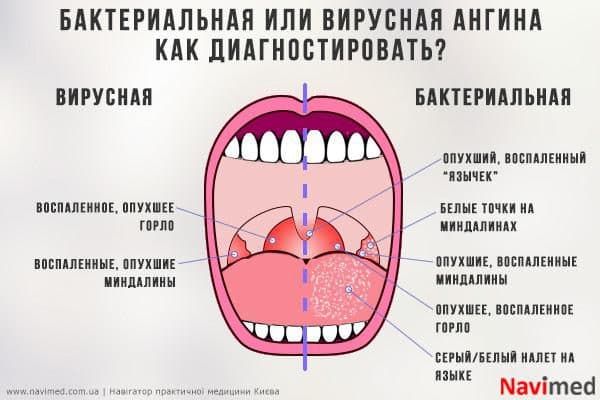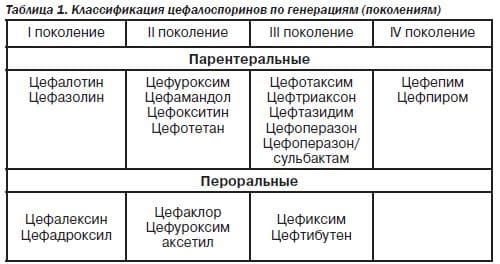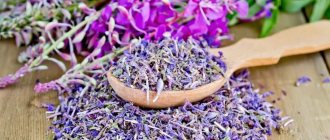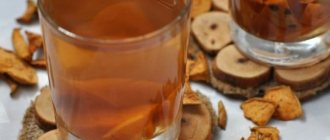First signs
Sore throat is not a simple viral infection and is much more difficult to treat than a common cold. This disease is caused by streptococci, which can lead to serious complications. That is why sore throat needs to be treated competently and in a timely manner. Correct therapy for all patients is a whole range of medications and procedures.
Local medications alleviate the condition of angina, but the treatment of this disease cannot be limited to them alone.
A sore throat in a nursing mother does not mean that the child needs to be weaned from the breast and transferred to artificial feeding. Everyone knows that mother's milk is rich in components that protect the baby's intestinal microflora. And a premature and sudden transition to artificial nutrition is a great stress for a small organism. Therefore, it is necessary to do everything possible to maintain the possibility of natural feeding.
A young mother needs to sound the alarm as soon as the first signs of illness appear and immediately consult a doctor.
Sore throat is an infectious disease and can occur in an acute form, as well as in combination with pharyngitis. It depends on which parts of the pharynx are affected by the inflammatory process.
There are several forms of sore throat:
- catarrhal;
- follicular;
- lacunar;
- necrotic;
- herpetic sore throat.
Classification of sore throats
A nursing mother needs to remember that you can catch a sore throat not only in winter, but also on a hot summer day, by eating, for example, just one serving of ice cream. Sharp cooling weakens the barrier abilities of the tonsils. The causative agents of sore throat - group A beta streptococci - begin to actively multiply. Within two days after the start of their breeding phase, the first signs of tonsillitis appear.
At the initial stage of its development, the following appear:
- weakness;
- chills;
- elevated body temperature (38-39°);
- Strong headache.
By the white coating on the tonsils, you can understand that a nursing mother is actively developing a sore throat, but a doctor must make an accurate diagnosis and prescribe treatment. The fact is that white plaque is characteristic of many diseases. It can be:
- scarlet fever;
- diphtheria;
- mononucleosis.
But if the pain intensifies when trying to swallow and spreads to the ear and neck walls, then these signs definitely indicate acute tonsillitis in a nursing mother.
Don't wait for additional signs of a sore throat. It is better to immediately consult a doctor and start treatment as soon as possible.

Diagnostics
There are several types of sore throat:
- superficial (catarrhal);
- deeper (lacunar);
- very deep (follicular).
Lacunar type of disease is a form of acute tonsillitis, which is characterized by fever, malaise, body aches, and severe sore throat. This form of the disease causes vomiting. Lacunar tonsillitis lasts for a week.
Ulcerative or follicular tonsillitis presents with the same symptoms as lacunar tonsillitis, but there is a rotten smell when breathing. The treatment period is 3 weeks.
Diagnosis of sore throat is carried out by examining the throat by an ENT doctor or therapist. In acute forms of the disease, pustules on the tonsils and significant enlargement of the lymph nodes can be seen. To confirm the diagnosis, the therapist may prescribe clinical blood and urine tests. In especially severe cases of the disease, a smear from the mucous membrane of the throat is taken.
Features of treatment
Features of the treatment of angina depend, first of all, on the cause of its occurrence. The doctor, having identified the causative agent of the disease, prescribes antibacterial, antiviral or antifungal therapy.
The doctor must be warned that the patient is breastfeeding.
Antibiotics
If the cause of a sore throat is streptococci, then, most likely, it will not be possible to manage without taking antibiotics. Treatment with antibacterial agents does not mean that you need to stop breastfeeding. It is recommended to take antibiotics during or after feeding so that as little harmful substances as possible enter the mother's milk.
Before taking any antibiotics, carefully read the instructions for the drug. Usually the manufacturer indicates whether this medicine can be used during lactation. If your doctor has prescribed a medicine, but the instructions indicate that it is not recommended, do not rush to take it. It is better to check with your doctor again about the correct prescription of the drug.
There are many antibacterial drugs that are allowed during breastfeeding and do not affect the development of the child. Among them the following groups can be distinguished:
- Penicillins (Amoxicillin, Amoxiclav, Ampicillin, Benzylpenicillin);
- First generation cephalosporins (Cephalexin, Cefazolin, Cefapirin);
- Second generation cephalosporins (Cefuroxime, Cefsulodin, Cefotiam);
- Macrolides (Azithromycin, Sumamed, Azitsin, Clarithromycin, Erythromycin, etc.)

The following antibiotics are prohibited during lactation:
- Tetracyclines (Tetracycline, Doxycycline, Glycocycline);
- Fluoroquinolones (Moxivloxacin, Ofloxacin, Levofloxacin, Ciprofloxacin);
- Levomycetin.
They affect the development of bone tissue and hematopoiesis. And this can negatively affect the child.
Complex treatment
For purulent sore throat, complex treatment is carried out, which is based on antibiotics. As mentioned above, modern pharmacology has the latest generation of drugs that are acceptable during breastfeeding.
If the mother's body temperature rises above 38ºC, in addition to antibiotics, it is necessary to take antipyretic drugs. Antipyretic drugs allowed during lactation include:
- Paracetamol;
- Panadol.
They also have an anti-inflammatory effect.
You should not lower the temperature if it has not reached 38.
As for sprays for irrigating the throat and affected tonsils, they affect the mother’s body only at the local level, and therefore are allowed for use by a nursing mother during a sore throat. Among the permitted sprays are:
- Stopangin;
- Givalex;
- Aqua Maris;
- Inhalipt;
- Kameton, etc.
Lozenges containing antiseptics are also allowed:
- Decathylene;
- Trachisan;
- Strepsils;
- Dr. Theiss et al.
If a purulent sore throat begins, you can rinse your throat with Lugol. In this case, the risk for the baby should be less than the expected positive result.
Before using Lugol, be sure to consult a specialist.
ethnoscience
Folk recipes and grandmother's advice are an option that can be used as an additional treatment for sore throat during lactation. It is believed that any herbs and infusions will not harm the child and will save the throat of a sick mother. But such reasoning is fundamentally incorrect and often leads to more complicated forms of sore throat, when the throat cannot be helped without a scalpel.
Advanced sore throat during breastfeeding will certainly lead to complications. The longer you do not carry out competent therapy for acute tonsillitis, the faster chronic tonsillitis will develop, from which it is one step away from rheumatism.
Gargling and inhalation
Traditional medicine widely popularizes gargling with furatsilin solution and herbal decoctions (chamomile, eucalyptus, sage). An alternative option is to rinse with a solution based on iodine, salt and soda. Treatment will be effective with regular and repeated rinsing throughout the day.
Carrot and beet juice with the addition of 2 drops of iodine, a teaspoon of salt and soda is also suitable for gargling.
It is very important to clear the throat of accumulated dead particles of mucus and pus released from the affected tonsils. This is facilitated by rinsing with warm disinfectant solutions and herbal decoctions: calendula, eucalyptus, sage, chamomile. The intervals between rinses should be at least 2 hours. It is better to alternate rinses with each other. For this purpose, you can also use medications recommended by your doctor that do not belong to the group of antibiotics:
- Romazulan;
- Septolete;
- Citrosept;
- Faringosept;
- Chlorophyllipt, etc.
Inhalations have a good effect in the treatment of acute sore throat. The most common and familiar procedure from childhood is inhaling potato steam.
Compresses, teas and other folk recipes
When breastfeeding, mothers are allowed to make curd compresses.
To do this, spread the cottage cheese on a thin white cloth in an even layer no more than 1 centimeter thick. Make a bandage and wrap it around your neck. Wrap a scarf or shawl over your throat. We offer some more folk remedies that will help in the quick treatment of purulent sore throat:
- Place a cabbage leaf on your throat, then wrap a shawl or scarf around your neck.
- Drink warm herbal tea with honeycomb. Honeycombs can be chewed without tea, but in reasonable quantities, since honey can cause allergies.
- Cranberry juice is an excellent natural antibiotic that will lower the temperature and increase the body's resistance. An infusion of lingonberry or cranberry leaves can be used to gargle a sore throat.
Not all folk remedies are suitable for breastfeeding. For example, onions and garlic can spoil the taste of milk, citrus fruits can cause allergies. The popular folk diaphoretic and antipyretic remedy - raspberry - may also not be suitable for treating sore throat during lactation. If your baby suspects an allergy, it is better to make tea from raspberry leaves. All plants that contain toxic substances are excluded.
What is the risk for the baby?
Even before the first symptoms of a sore throat appear in the mother, pathogens and antibodies have already entered the body of a baby who is fed breast milk. And although a breastfed baby is partially protected, it should be remembered that sore throat is a contagious disease. A mother with a sore throat is recommended to wear a bandage when in contact with her child.
The main thing during this period is not to harm the baby! That is why you should follow all the doctor’s recommendations and not do anything on your own.
What to eat when you have a sore throat?
The first thing to do during illness is to reduce fluid loss. Drinking plenty of fluids includes still water, fresh fruit jelly, dried fruit compotes, tea with lemon. Remember that drinks should be at room temperature so that cold or heat does not irritate already inflamed mucous membranes. It is advisable to prepare the first and second courses in the form of purees and liquid porridges. It is necessary to remove salty and spicy foods from the menu.
The disease is difficult for ordinary people to bear; it is doubly difficult for women who feed their babies. Pathological complications can bring a lot of trouble to a nursing mother. A timely visit to a therapist helps you quickly choose the right treatment plan and avoid annoying consequences. Independent fight against the acute form of the disease is dangerous due to its unpredictability in terms of the final result. Avoid such decisions so as not to harm your treasure.
Obstetrician-gynecologist, reproductive specialist, lactation consultant, graduated from ChSU named after. Ulyanova with a specialization in gynecology, mammology Read more »
Recommendations for patient care
It is necessary to treat a sore throat in a comprehensive manner, and adherence to the regimen plays an important role in recovery.
A woman during lactation needs rest and peace. A sore throat suffered on the legs is a direct path to complications. It is difficult for one mother to cope with both the child and the illness, so during the period of illness, the help and support of other family members is very important. Relatives should take on the troubles of caring for the child, help with wet cleaning and ventilation of the room, and also provide sick rest. After overcoming the illness, a nursing mother should not rush into hardening procedures; it is advisable not to get too cold and beware of contact with people who have a cold, since the body needs time to restore immunity.
Names of nasal drops with antibiotics for the treatment of sinusitis in adults and children.
Everything about follicular sore throat is written in this article.
What to do if a child has a cough with sputum: //drlor.online/diagnostika-lechenie/kashel/kak-lechit-s-mokrotoj-u-rebenka.html
Prevention
There are two ways to prevent the development of sore throat:
- avoid places of potential infection;
- strengthen your own immunity.
Since it is a rare person who will be able to completely refuse contact with people for fear of contracting an infection, it is necessary to focus on the protective powers of your immune system.
To avoid sore throat during breastfeeding (breastfeeding), a nursing mother needs to eat a healthy and balanced diet, avoid strict diets, spend more time in the fresh air and ventilate the room. During epidemics, it is useful to rinse the nose and larynx with saline solution.

It is also important to sanitize foci of internal infection: promptly treat sinusitis, sinusitis, tonsillitis, caries. This will give the immune system the opportunity to work in a mode that is comfortable for it, and, therefore, the risk of contracting any infection, including sore throat, will be significantly reduced.
conclusions
It's no secret that proper nutrition, regular walks in the parks, exercise, hardening, and eliminating the possibility of hypothermia prevent various diseases and strengthen the immune system. Mothers should be extremely vigilant and try not to provoke a sore throat and other inflammatory diseases. After all, they are responsible for the health of their children.
Treatment of dry cough in children with folk remedies: all modern methods of treatment actively used by parents.
Necrotizing ulcerative tonsillitis: how dangerous is this disease?











